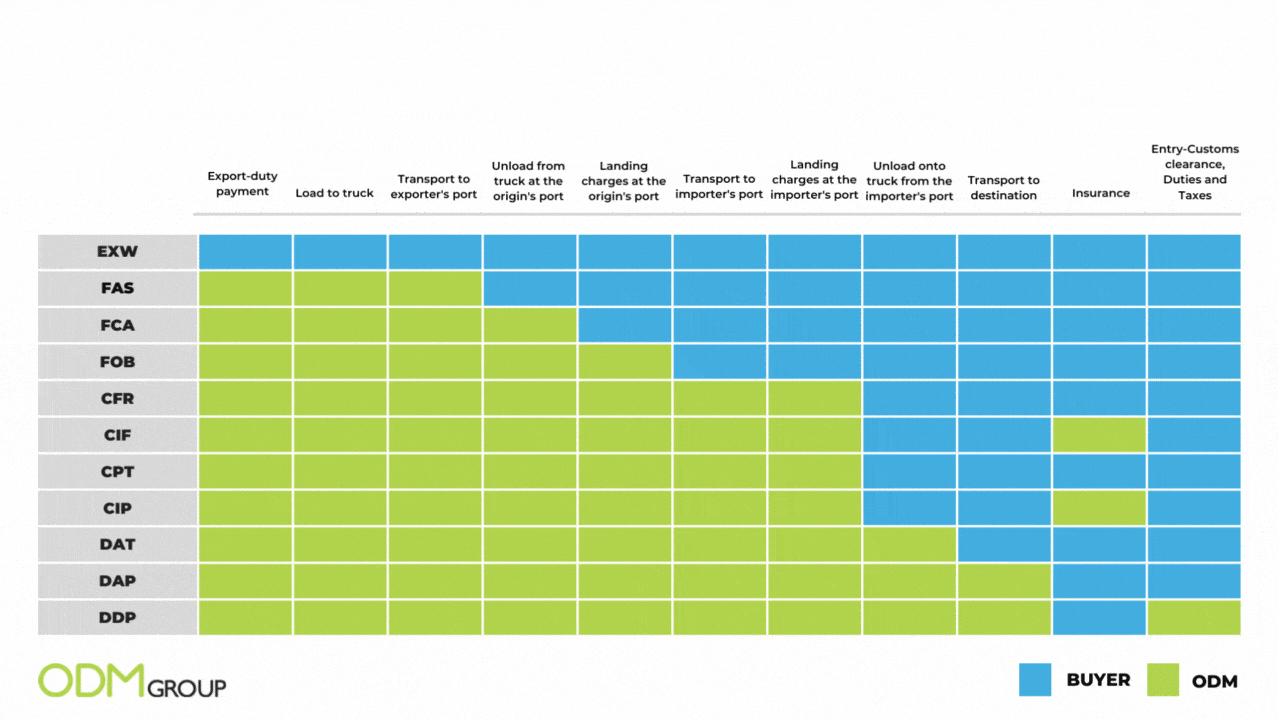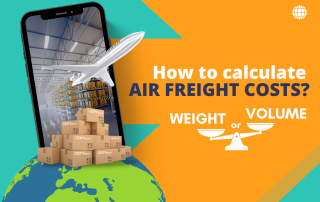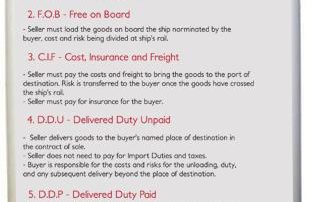Incoterms, short for International Commercial Terms, are widely recognized and used in the global trade industry to define the responsibilities and obligations of buyers and sellers in international transactions. Whether you’re a seasoned importer/ exporter or a newbie to the world of international trade, understanding Incoterms is crucial for smooth operations and avoiding costly mistakes.
In this blog, we’ll break down the basics of incoterms, their importance, and how they impact your business. So, let’s dive in!
The most recent update to Incoterms is the Incoterms 2020, which was published by the International Chamber of Commerce in 2019. It is the latest edition of the Incoterms® rules and will help prepare businesses for the next century of global trade. As of January 1, 2020, all sales contracts should include references to the Incoterms® 2020 rules.
What Are Incoterms?
Incoterms are a set of internationally recognized rules that define the responsibilities of buyers and sellers in international trade transactions. They specify who is responsible for the shipment, insurance, documentation, customs clearance, and other logistical activities involved in the delivery of goods. The International Chamber of Commerce (ICC) publishes these rules to facilitate commerce around the world.
How Incoterms Are Used in the International Trade?
Incoterms are used in international trade to provide a standardized framework for defining the responsibilities, costs, and risks associated with the delivery of goods, thereby facilitating smooth and efficient international trade transactions. It is important for parties involved in international trade to understand and use Incoterms correctly to ensure clear communication and avoid disputes.
Overview of the Different Categories of Incoterms
Incoterms are divided into two main categories based on the mode of transportation:
Incoterms for any mode of transportation (also known as “multimodal” or “generic” Incoterms): These Incoterms can be used in both domestic and international trade, and they apply to any mode of transportation, including road, rail, air, and sea. The seven Incoterms in this category are:
- EXW (Ex Works)
- FCA (Free Carrier)
- CPT (Carriage Paid To)
- CIP (Carriage and Insurance Paid To)
- DAP (Delivered at Place)
- DPU (Delivered at Place Unloaded)
- DDP (Delivered Duty Paid)
Incoterms for sea and inland waterway transportation: These Incoterms are specifically designed for use in maritime trade and inland waterway transportation. They cannot be used for other modes of transportation. The three Incoterms in this category are:
- FAS (Free Alongside Ship)
- FOB (Free on Board)
- CFR (Cost and Freight)
- CIF (Cost, Insurance and Freight)
It’s important to note that each Incoterm defines the specific responsibilities and risks for the seller and the buyer regarding the delivery, transportation, insurance, and customs clearance of goods. It’s crucial for parties involved in international trade to clearly understand and agree upon the appropriate Incoterm to use in their contracts to avoid misunderstandings and disputes.
Why are Incoterms Important?
1. Clarity and Understanding
Incoterms provide a clear and standardized set of rules and terminology that help ensure a common understanding between parties engaged in international trade. They outline the specific obligations and responsibilities of buyers and sellers, such as who is responsible for transportation, insurance, customs clearance, and other related costs and risks. This clarity helps avoid misunderstandings and disputes and facilitates smoother international transactions.
2. Risk Allocation
Incoterms define the allocation of risks and responsibilities between parties. For example, some Incoterms place more responsibility on the seller for transportation and related costs, while others place more responsibility on the buyer.
Understanding the Incoterms being used in a contract helps parties assess and manage the risks associated with the international transportation and delivery of goods.
3. Cost Calculation
Incoterms provide a basis for calculating costs associated with international trade transactions. They clearly outline which party is responsible for various costs, such as transportation, insurance, customs duties, and other charges. This helps parties accurately calculate and allocate costs in their pricing and financial planning.
4. Legal Framework
Incoterms are recognized globally and can serve as a foundation for contracts and legal disputes. They are regularly referenced in international sales contracts and can help parties establish the legal framework for their international trade transactions.
Customs authorities also recognize Incoterms and can be used to determine the valuation of goods for customs purposes.
5. International Trade Compliance
Incoterms can assist parties in complying with international trade regulations and requirements. For example, some Incoterms specify the point at which risk and responsibility transfer from the seller to the buyer, which can have implications for customs clearance, import/export regulations, and trade compliance.
Changes to Incoterms 2020
Incoterms FAQs
All you need to know about Incoterms!
Browse Inspiring Marketing Case Studies:
Bar Promotion Ideas to Spice Up Your Business – Unique Drinking Glasses
The 13th of June is Gin Day and the 14th of June is [...]
Strategic Gifting: Top 30 Premium Corporate Gifts To Boost Business Bonds
This blog post isn't about empty gestures. We will discuss luxurious, thoughtful, personalized, [...]
Types of Fabrics: Unveiling the Secrets Behind Different Textile Materials
Deciding which types of fabrics to make an item with is an important [...]








